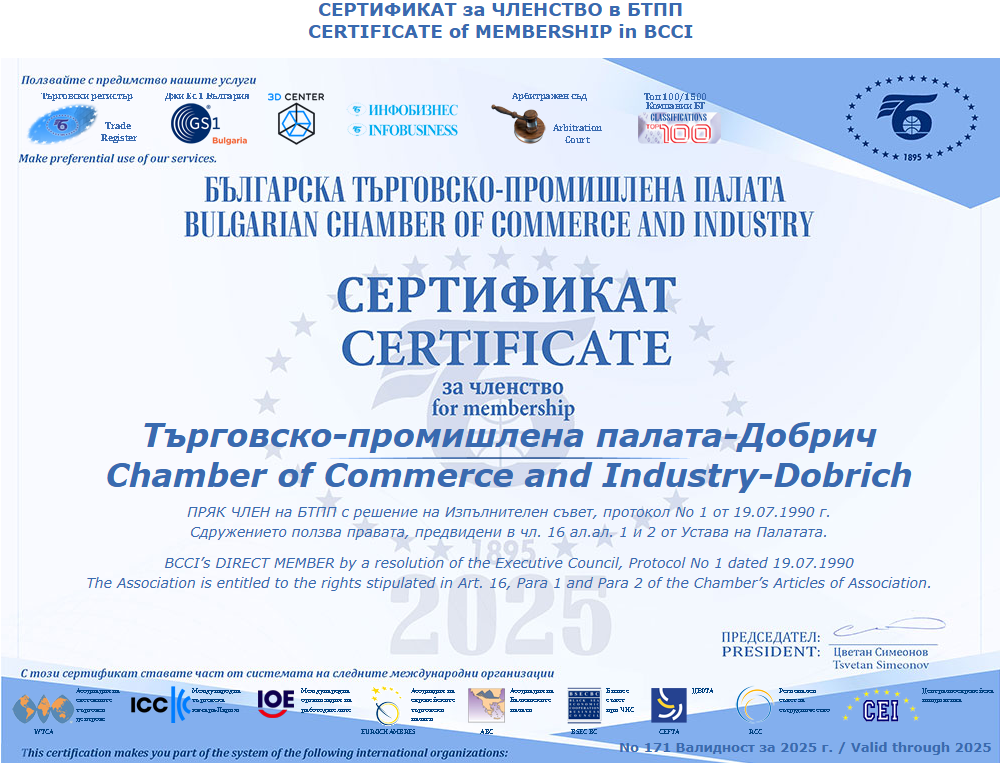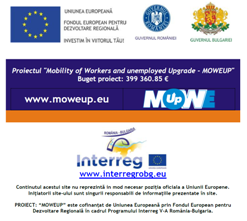Heritage for RO-BG (EN)
Project Name: A heritage-friendly cross-border economy in Romania and Bulgaria
Acronym (short title or abbreviation): Heritage for RO-BG Economy
Programme: Interreg V-A
Priority axis: 2 A green region
Specific objective 2.1: To improve the sustainable use of natural heritage and resources and cultural heritage
Beneficiaries:
- Lead Beneficiary (LB) Constanta Chamber of Commerce, Industry, Shipping and Agriculture, Romania
- (B2) Chamber of Commerce and Industry Dobrich
Project duration (number of months): 24 months ( 02.02.2016 – 01.02.2018)
1.2. Project summary
The project objective is to facilitate a common approach on the sustainable use of cultural and natural heritage, in order to determine the growth and creation of jobs in the border area RO–BG, by improving tourism sector.
The project tackles the concept of heritage-friendly economy and it main results are:
- An assumed cross-border strategy for developing a heritage-friendly economy – a framework for guiding, volunteer regulation and recognition of sustainably using natural and cultural.
- An implementation framework covering the RO and BG chambers of commerce and other business support organisation along the border to be involved in the Strategy implementation, including trainings for their experts, and production of various implementation tools.
- A pilot implementation phase including an information and educational campaign targeting local business communities in Constanta and Dobrich, pilot training sessions and recognition.
Main activities:
- Elaboration of the Strategy for developing of a heritage-friendly business environment
- Establishment of the Strategy implementation frame for CCIs and other business associations - Pilot implementation actions of the Strategy in Constanta and Dobrich areas
- Visibility and publicity of the project
- Project management
Total budget: 334.181,00 Euro, of which eligible value from ERDF 284.053,85 Euro.
Project description
RO-BG border area enjoys remarkable natural resources, mostly concentrated along Danube, with hundreds of natural reserves, of which 187 NATURA 2000, and of cultural monuments, including two UNESCO sites in Bulgaria. Part of these resources included in 423 tourist sites recently inventoried. This richness is subject of economic usages, mostly from tourism. Despite being active business communities, their reduced economic results place RO-BG peripheral areas among the poorest in EU and in the two countries, while recent evolution of the macroeconomic and local statistics shows a very slow recovery. In this context, enterprises lack knowledge and allocate few financial resources to restore, protect and sustainably use their most important assets – the heritage their businesses draw out their wealth, while communities draw their identity and pride. Vice-versa, by sustainable socio-economic usage, these resources don’t perish in isolation and abandonment. In this context, by supporting businesses to identify, promote and implement new ways of economic usage of heritage, covering the entire value chain of customers/tourists – company – local community, under a common cross-border strategy, the project will pave the way for maintaining harmony between heritage protection and its economic usage, and thus improve the tourism in the border area. A cross-border approach is more relevant for the cultural heritage, as reflecting the common history, while the natural heritage reflects unique and common geographic regions, mostly concentrated along Danube; even more, the recent decision of RO and BG tourism ministries to stimulate the creation and promotion of common tourist products prove this joint approach to be the best response to globalisation and cultural and experiential tourism trends.
Project main objective(s) and expected result(s)
The project overall objective is to facilitate the adoption of a common cross-border approach on the sustainable use of cultural and natural heritage, in order to determine and promote new models of viable and heritage-friendly economic activities, and improve the tourism in the cross-border area, by elaborating a cross-border strategy for a heritage-friendly business environment and creating the cross-border framework for supporting businesses to adopt and implement heritage-friendly strategies.



